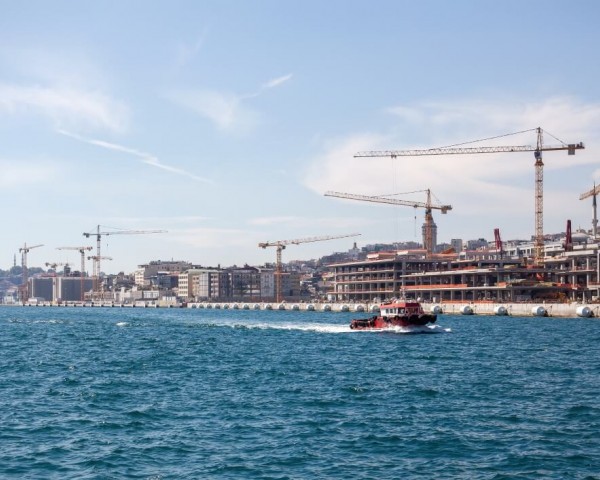Turkey is a highly popular tourist destination, attracting millions of visitors yearly with its rich history, cultural heritage, and beautiful coastal areas. In addition to its vital tourism industry, Turkey is also a hub for business travel due to its growing economy and strategic location. As a result, there has been a significant increase in tourism investments, with both international hotel chains and local groups competing for opportunities in the market.
10 Hotel Brands in Turkey Plan 155 New Projects
According to local media, the ten largest hotel groups in Turkey have 155 new projects planned to be completed by 2025. Local companies play a significant role in the accommodation sector, a key part of the travel industry. They handle investment, operation, and management in this sector. Turkey is gaining the attention of leading hotel brands for new hotel projects.
The 2024 2nd Quarter European Hotel Construction Investment Trend Report by Lodging Econometrics (LE) reveals that London leads the new hotel investments in Europe with 76 projects, followed by Istanbul with 50 projects. When considering countries, Turkey ranks fourth in the number of new hotel projects.
354 New Hotel and Tourism Investment Projects by 2026
A total of 354 new hotel and tourism investment projects are anticipated to be completed in Turkey by 2026, in addition to both local and foreign brand projects soon to be launched. According to the Tourism Databank Research, as of August 11, 2024, approximately 100 4- and 5-star hotels are scheduled to open in Turkey during 2025-2026. This will add over 12,000 rooms and 27,000 beds to the country’s accommodation capacity, with a collective investment value of around 24.8 billion TL.
These 354 upcoming hotel and tourism projects are expected to contribute 57,055 rooms and 126,407 bed capacity. Moreover, an estimated 92 billion TL will be spent on renovation investments. In the first half of 2024, the number of hotel building permits issued by municipalities in Turkey increased by 88 percent, reaching 1,092. The provinces with the most permits are Muğla, Istanbul, Balıkesir, Antalya, Trabzon, and Sakarya. At the same time, the leading districts are Bodrum, Ayvalık, Şile, Seril, and Sapanca, according to data from Tourism Databank.
Franchise Race of Famous Hotel Chains
The latest data from the Ministry of Culture and Tourism, as of July 2024, shows that 6,009 facilities have an operation certificate, 731 businesses have investment certificates, and 14,867 accommodation facilities have various statuses. Some of these were previously classified as municipality certificates but have been redefined by the ministry as simple operation certificates.
According to Ekin Group Research, there are 184 groups with multiple facilities in Turkey. One hundred fifty-nine of the operational hotels are owned by local companies. Dedeman leads the list of local group chains with 40 hotels, followed by Anemon Hotels with 26 facilities, Crystal Hotels with 16 facilities, Coral with 14 facilities, and Divan, Titanik, Kaya, and The Green Park brands with 10 facilities each.
400 Hotels of 23 International Hotel Brands
Turkey is a destination where the world’s largest hotel groups compete to bring in their brands. This competition isn’t just about investment, operation, and leasing (franchising) their brands. According to the Ekin Group Research unit, 400 hotels belong to 23 foreign hotel brands in Turkey.
However, foreign chains come to Turkey not to invest but to provide the naming rights (franchise). Hotel owners who use these franchises make payments ranging from 4% to 5% of room revenues based on type, class, star status, and brand turnover. These payments add up to a franchise bill of 125 million Euros annually for hotel owners in Turkey.
Tourism experts emphasize, however, that foreign brands holding naming rights should also invest in the accommodation sector. They also highlight the scarcity of tour operators collaborating with Turkey with direct investment in accommodations. For instance, TUI has only 16 hotels in Turkey with direct investments aside from franchise operations and rentals.
Similarly, Turkish tour operators in Russia also have very few of their hotels in the market. Experts suggest that more attention should be given to the accommodation sector, which is considered the driving force of the tourism industry. They argue that the accommodation sector’s increasing need for new capital should be met by establishing a ‘tourism fund’ to provide financing.












